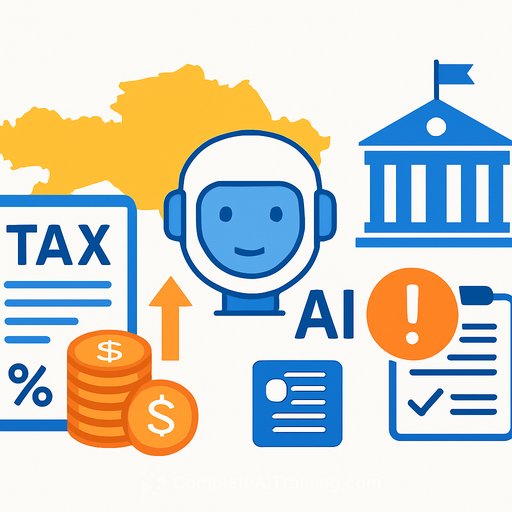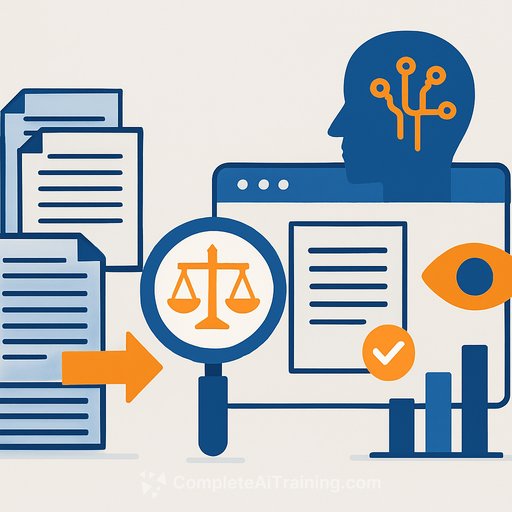New Tax Code, AI Ministry, and Tighter Control: Key Legal News from Kazakhstan
18.11.2025
This briefing captures the regulatory shifts that will affect corporate structures, tax planning, advertising, payments, gambling compliance, and workforce mobility in Kazakhstan. Use the timelines and action points below to prepare policies, contracts, and internal controls.
Migration Control: AI Monitoring, 30+ Day Registration, and Risk Filters
The Ministry of Internal Affairs will apply digital monitoring with AI to track the purpose and duration of stay for foreign citizens. A registration requirement applies to foreigners staying more than 30 days. The MVD may refuse invitations for citizens from "migration risk" countries, and administrative liability is being developed for registration violations.
- Audit current visa support workflows and revisit sponsor policies for invite letters.
- Add a 30-day trigger in HRIS/immigration trackers for timely registration.
- Tighten controls against fictitious registrations; update lease/temporary address procedures.
- Update privacy notices to reflect AI-based monitoring where relevant.
Foreign Founders: New Document Pack for Registration/Re-registration
Effective September 28, 2025 (Order of the Minister of Justice No. 505), small and medium-sized entities with a foreign legal entity as founder must provide a legalised extract from the trade register (or equivalent) plus a notarised translation into Kazakh and Russian. The order also clarifies documentation for property owners' associations and housing cooperatives.
- Plan legalisation and sworn translations early; timelines will stretch closings.
- Refresh your corporate formation checklists and mandate country-of-origin capacity proofs.
- For restructurings, confirm re-registration packs meet the same standards.
Budget Draft 2026: MCI, MW, and Benefit Floors
From January 1, 2026 (draft law on the 2026-2028 budget): MW - 85,000 KZT; basic pension - 35,596 KZT; minimum pension - 69,049 KZT; MCI - 4,325 KZT; subsistence minimum - 50,851 KZT. These numbers drive payroll thresholds, penalties, and certain tax calculations.
- Update payroll systems, employment contracts, and HR policies tied to MW/MCI.
- Recalculate fines, state duties, and social benefits indexed to MCI or subsistence minimum.
Digital Advertising: Definitions, Placement Rules, and Security Policies
The Ministry of National Economy proposes amendments clarifying digital (including projection) advertising, placement procedures, and the introduction of information security policies for advertising activities. The draft is available for public discussion until August 26, 2025 on the Open Regulatory Legal Acts portal.
- Map current digital/outdoor ad formats to the new definitions.
- Draft or update an information security policy for marketing operations and vendors.
- Review creative approval workflows for new placement rules.
Open Regulatory Legal Acts portal
Anti-Fraud Centre: Unified Data Exchange on Suspicious Transactions
The National Bank proposed rules for an Anti-Fraud Centre to coordinate among regulators, banks, MFIs, payment firms, telecoms, and law enforcement. The draft covers limited services for clients flagged in the database, cooperation procedures with authorities, and refund mechanics for recognised fraud cases. Public discussion runs until July 23, 2025 on the Open Regulatory Legal Acts portal.
- Update AML/CTF playbooks for data sharing with the Centre and law enforcement.
- Define internal steps for service limitations if a client is flagged.
- Set refund and dispute workflows aligned with the draft's coordination requirements.
Gambling and Lotteries: New Powers and Data Protection
As of July 30, 2025, the Committee for Regulation of the Gambling Business and Lotteries is tasked with digital transformation and countering the shadow economy. The Chair can appoint heads of subordinate bodies (with the Ministry) and must ensure personal data protection.
- Review licensing, reporting, and data protection controls for digital processes.
- Strengthen AML/KYC and anti-shadow procedures, especially for online channels.
New Tax Code: Effective January 1, 2026
The new Tax Code and accompanying law overhaul administration and policy. Highlights include differentiated sector rates, reformed special regimes, a 16% base VAT rate with a lower VAT registration threshold, fewer tax benefits (cut by at least 20%), a 20% reduction in taxes and mandatory payments, a service-based taxpayer interaction model, digitalised tax control, 30% less reporting, and a simplified VAT refund process.
- Model sector-specific tax impacts and revisit legal entity structures and special regimes.
- Reassess VAT registration, pricing, and contract gross-up clauses under the 16% base rate.
- Update compliance calendars and internal controls for reduced reporting and digital checks.
- Refresh tax controversy strategies to align with the service model and new audit methods.
AI Ministry and the Forthcoming Digital Code
Kazakhstan will establish a Ministry of Artificial Intelligence led by a Vice Prime Minister. The Government is tasked with broad AI implementation and fast-tracking a Digital Code to regulate AI, platform economy, big data, and digital governance. Expect downstream changes in sectoral compliance, data flows, procurement, and algorithmic accountability.
- Launch an AI governance framework: data sourcing, model risk, accountability, and vendor terms.
- Prepare for disclosure and audit duties around automated decision-making.
- Train legal and compliance teams on AI fundamentals and upcoming regulatory themes.
AI courses by job (practical upskilling)
Digital Financial Assets: Three Categories and Split Oversight
A draft banking law introduces three categories: stablecoins (claims to money), digital financial assets backed by an underlying asset, and traditional financial instruments issued in digital form. The National Bank regulates stablecoins, while the ARDFR oversees other digital assets. Issuance runs through licensed digital platform operators, and the law recognises the digital tenge as a new form of national currency with tighter rules for payment organisations.
- Update offering documentation, risk disclosures, and investor protections to match traditional instrument standards.
- Review licensing pathways for platform operations and custody/control mechanics.
- Adjust payment terms and settlement clauses to account for the digital tenge.
What to Do Now
- Build a 2025-2026 compliance roadmap aligned to effective dates above.
- Refresh corporate templates: founders' docs, VAT clauses, AI/data addenda, and refund provisions.
- Tighten KYC/AML, especially with Anti-Fraud Centre integration and gambling sector changes.
- Coordinate HR, tax, and finance on MW/MCI updates and foreign worker registration rules.
Your membership also unlocks:





